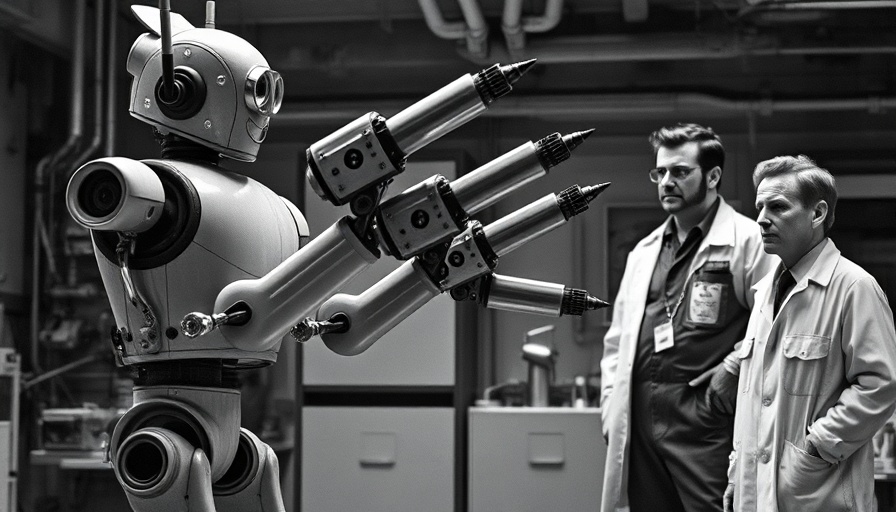
AI Co-Scientists: Reshaping the Future of Scientific Discovery
The recent announcement by Google regarding its AI co-scientist platform signifies a monumental shift in how scientific research may be conducted. This innovative tool employs a system of seven specialized AI agents that work collaboratively to assist researchers in generating hypotheses, conducting studies, and ultimately accelerating discoveries in various scientific fields.
Understanding the Mechanism Behind AI Agents
The AI co-scientist harnesses the capabilities of multiple agents—including a generation agent, reflection agent, ranking agent, and others—to create a robust framework for scientific exploration. These agents engage in processes akin to debates and collaborative discussions. Through a method known as “self-play,” they assess each other's ideas, enhancing the overall quality of hypotheses before they reach the human scientist.
Implications for Traditional Research Roles
The introduction of AI in scientific research is not merely about replacing human scientists; it’s about augmenting their capabilities. Experts assert that AI co-scientists are designed as collaborative tools, complementing the intuitive skills and nuanced understanding of human researchers.
Achieving Breakthroughs in Biomedical Research
AI co-scientists have demonstrated tremendous potential, particularly in healthcare applications. An example of this is their efficiency in generating drug repurposing candidates for diseases like acute myeloid leukemia (AML), where AI-generated hypotheses have led to clinically relevant outcomes following rigorous testing. These breakthroughs not only accelerate the timeline for developing new treatments but also offer more cost-effective alternatives in the healthcare industry.
Changing the Landscape for Scientific Advancements
As organizations like SpaceX have showcased, scientific breakthroughs can drastically alter manufacturing processes and reduce costs. Companies focusing on science—whether they are in pharmaceuticals, computing, or energy—stand to benefit immensely from the rapid advancements in AI-enhanced research. The integration of AI co-scientists can facilitate quicker iterations on experiments, leading to accelerated timelines for product development and deployment.
The Future: Collaboration vs. Replacement
One of the critical questions raised amid this technological advancement is whether AI will augment or replace traditional roles within scientific laboratories. While there are concerns regarding AI-generated content possibly overwhelming the scientific community, experts argue that the involvement of human insight remains indispensable. The primary focus should be on how AI can serve scientists rather than supplant them.
Addressing Ethical Considerations in AI Research
As the integration of AI into research continues to grow, it remains crucial to discuss ethical considerations surrounding AI-generated experiments and results. Ensuring the integrity of scientific literature and preventing misinformation is increasingly important as AI generates content at a rapid pace. Collaborative supervision between AI applications and human experts is essential to maintain the quality and credibility of scientific research.
Your Role in the Evolving Landscape of Research
In light of these advancements, scientists are encouraged to familiarize themselves with AI tools available today. Adopting an innovative mindset can foster a seamless integration of AI into research workflows. As technology evolves, researchers must adapt to harness these resources to their maximum potential.
In summary, as AI technologies evolve, so does the potential for groundbreaking advancements in multiple fields, particularly in scientific research. Embracing these tools can lead to unprecedented achievements.
 Add Row
Add Row  Add
Add 


 Add Row
Add Row  Add
Add 

Write A Comment